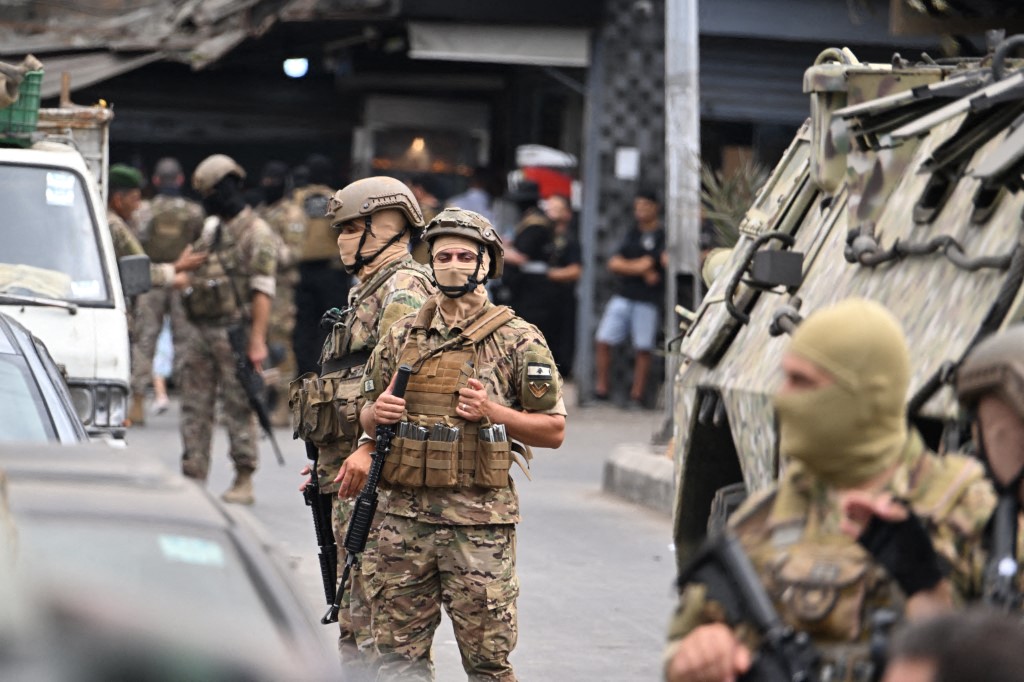As Lebanon awaits Friday’s Cabinet session to review the army’s implementation plan for confining all arms to state control before year’s end, "Hezbollah"’s arsenal enters a new crossroads—where local and regional dynamics intersect, and battlefield realities collide with constitutional mandates. The Presidency and the military establishment insist there will be “no turning back,” while Speaker Nabih Berri has drawn red lines against any forced disarmament, urging instead a “calm defensive strategy” echoing "Hezbollah"’s own reservations about the plan.
The Cabinet: Will the “Third take be the best”?
What requires close attention is that Lebanon’s highest authority, the Cabinet as a whole, has already approved the principle of a final and decisive solution to "Hezbollah"’s arms. All eyes now turn to Friday’s meeting to determine the fate of the army’s blueprint, which is supposed to be enacted before the year’s end. The key question looms: Will today’s session be a continuation of the August 5 and 7 meetings that endorsed the objectives outlined in U.S. envoy Tom Barrack’s paper? And will the Cabinet’s decision carry force on its own, or remain hostage to political compromises that frame and delay implementation?
Israel’s Satellite: “We’re closely watching you”
As Lebanon debates "Hezbollah"’s arms and their destabilizing implications, Israel has launched a new spy satellite, “Ofek 19,” describing it as a clear message to its “enemies” that they are under constant surveillance. This show of technological prowess was not symbolic alone—it tied directly to recent months of conflict with Iran, during which Israel gathered over 12,000 satellite images to guide precision strikes.
The Assassination of Nasrallah: Groundwork talks
The most alarming development came with Mossad’s revelation of its agents’ presence in Beirut ahead of the assassination of former "Hezbollah" leader Hassan Nasrallah in September. While "Hezbollah" boasted of its security and military capabilities, Mossad—by its own account—successfully operated “under fire” inside Beirut’s southern suburbs, securing the precise intelligence that paved the way for the fatal strike. The picture that emerges is both sharper and more painful: technology alone did not clinch the operation, but rather the fusion of intelligence assets with on-the-ground infiltration inside Lebanon’s capital, making the impossible suddenly possible.
"Hezbollah" Past and Present: From Deterrence to Vulnerability?
Nasrallah’s assassination, combined with Israel’s intelligence and technological superiority—notably demonstrated in the infamous “Pager” operation—has sparked serious questions about the continued utility of "Hezbollah"’s weapons in today’s Lebanese equation. Once seen as a deterrent, the arsenal now risks becoming a burden, placing Lebanon before a fateful domestic choice: a sovereign state that most Lebanese aspire to see rise, in tune with regional and international expectations—or a parastate dragged into alignment with Tehran’s agenda.
For decades, "Hezbollah"’s weapons served as an Iranian pressure card. But recent events—from battles with Israel to the assassination scene—proved that these arms are neither impenetrable nor immune to the adversary’s technological edge.
The Battle for National Decision
Today, Lebanon stands between the army’s plan, Cabinet deliberations, and Israel’s supremacy in space and on the ground. The question is stark: will the chapter of "Hezbollah"’s arms be closed through an internal will that restores state authority, in line with the aspirations of Lebanese across regions to build a credible national state? Or will it remain hostage to regional calculations, dragging the country into endless, costly confrontations both domestically and abroad?
Perhaps Lebanon, at this critical juncture, does not need more weapons as much as it needs the courage of a national decision. Experience has shown that only the army can provide a roof under which all can gather, and only the state can offer the Lebanese people a sliver of hope—like the breath of air from Yarzeh when the world feels suffocating.
Please post your comments on:
[email protected]
 Politics
Politics







